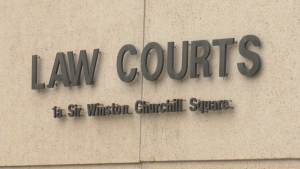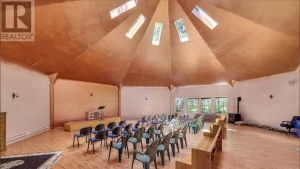An advocacy group has been ordered to pay a portion of the City of Edmonton’s legal costs in a lawsuit over the clearing of homeless camps.
The lawsuit was filed by the group, Homes for the Homeless, in response to the city’s actions in dismantling several homeless camps in 2019. The group argued that the city’s actions were in violation of the Charter of Rights and Freedoms, specifically the right to life, liberty, and security of the person.
However, the Court of Queen’s Bench has ruled that the group must pay $5,000 towards the city’s legal costs. The judge stated that while the group’s intentions were noble, their arguments were not strong enough to justify the city’s legal expenses.
The city’s legal team argued that the lawsuit was frivolous and without merit, and that the group should be responsible for a portion of the costs incurred in defending against it.
In response to the ruling, the city’s lawyer, David Wachowich, stated that the decision sends a message that “frivolous lawsuits will not be tolerated and that there are consequences for bringing them.”
Homes for the Homeless has expressed disappointment in the ruling, stating that they were fighting for the rights of the homeless population and that the decision to clear the camps was a violation of their human rights.
The group’s lawyer, Avnish Nanda, argued that the ruling sets a dangerous precedent for advocacy groups and their ability to challenge government actions.
“This decision sends a chilling message to all advocacy groups that if you challenge the government, you will be punished,” Nanda said.
The city has defended its actions, stating that the homeless camps were a safety hazard and that they were providing alternative housing options for those affected.
The ruling has sparked debate over the city’s approach to addressing homelessness and the rights of advocacy groups to challenge government actions.
Some argue that the city’s actions were necessary to ensure public safety and that advocacy groups should not be able to burden taxpayers with frivolous lawsuits. Others believe that the city should be held accountable for its treatment of the homeless population and that advocacy groups play a crucial role in advocating for their rights.
Regardless of differing opinions, the ruling serves as a reminder that there are consequences for bringing forth lawsuits without strong legal grounds. It also highlights the ongoing issue of homelessness and the need for effective and compassionate solutions.



